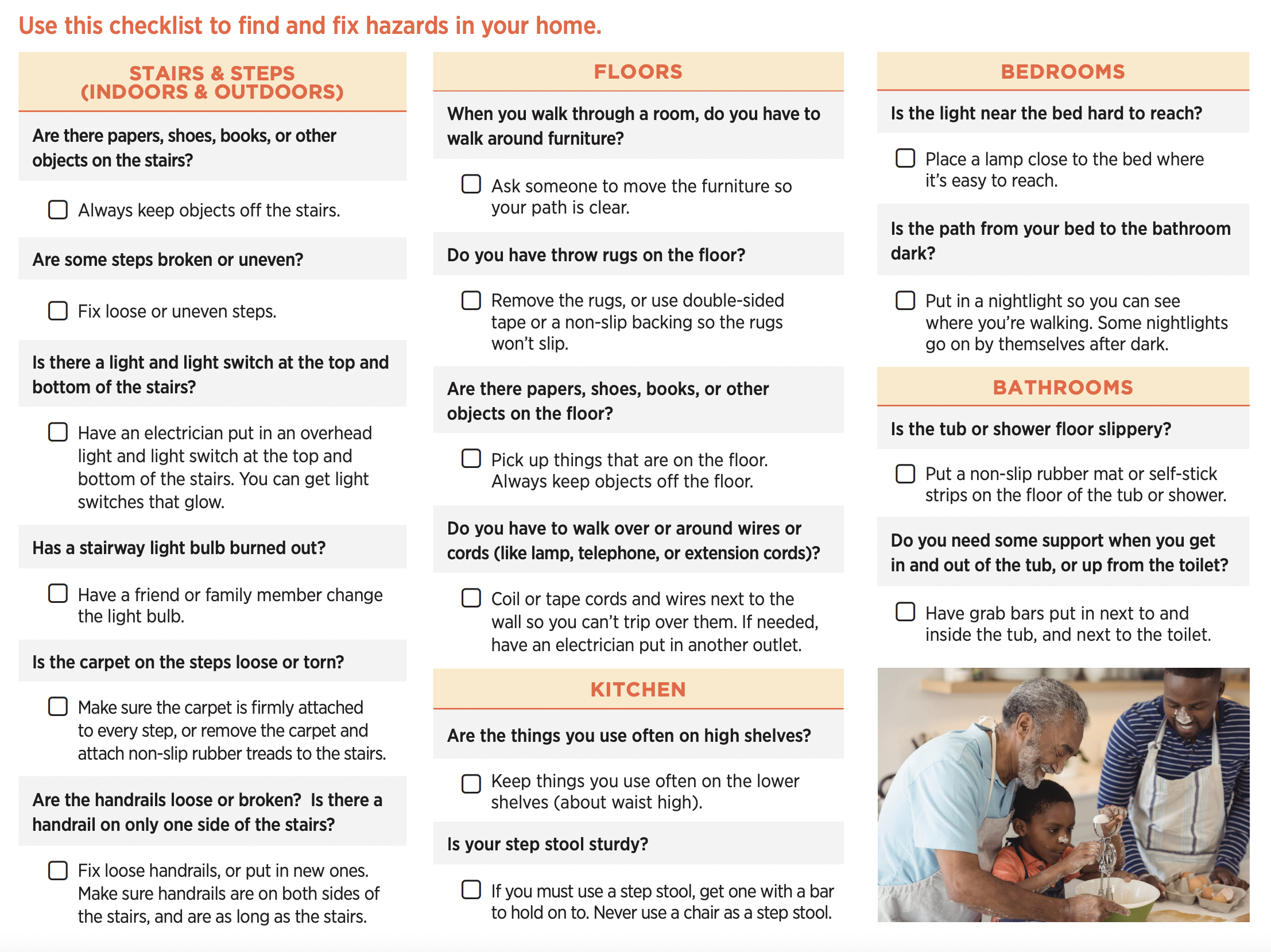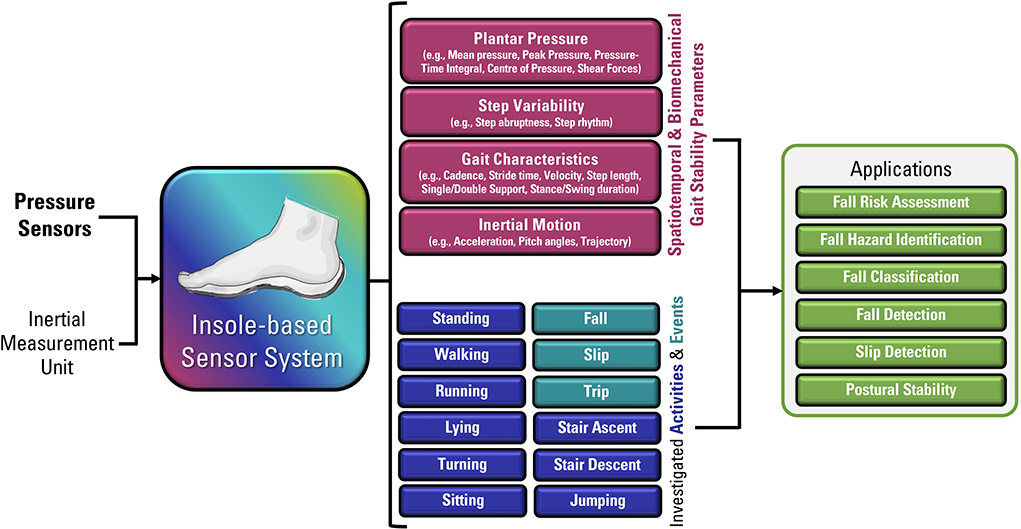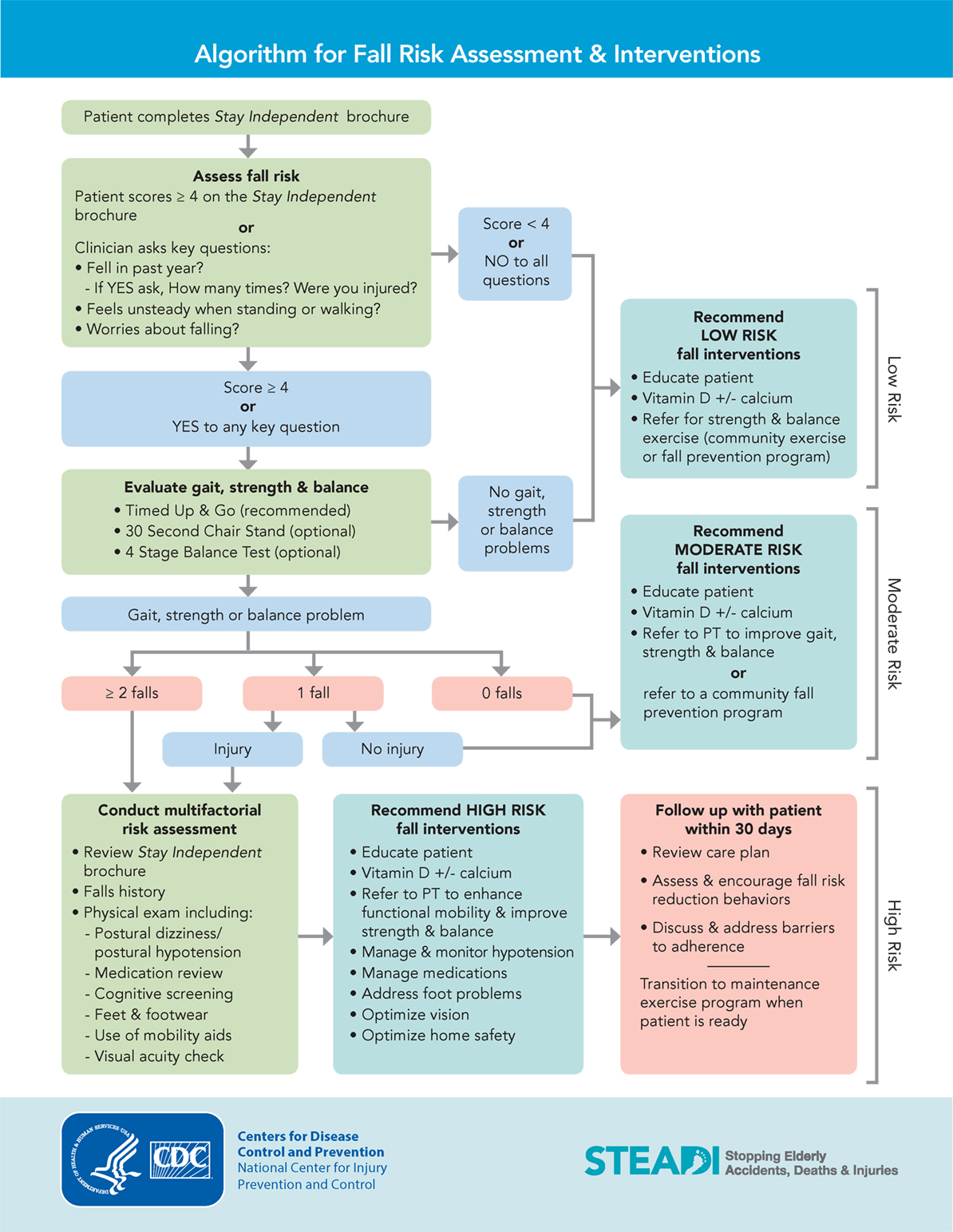Some Known Factual Statements About Dementia Fall Risk
Table of ContentsThings about Dementia Fall RiskExamine This Report about Dementia Fall RiskRumored Buzz on Dementia Fall RiskDementia Fall Risk Can Be Fun For EveryoneDementia Fall Risk Things To Know Before You Get This
The FRAT has three sections: drop threat standing, threat element checklist, and action strategy. An Autumn Danger Standing includes information concerning background of recent falls, medications, psychological and cognitive status of the client - Dementia Fall Risk.If the person ratings on a threat aspect, the equivalent number of factors are counted to the patient's fall risk rating in the box to the far ideal. If an individual's loss threat score amounts to 5 or higher, the person goes to high risk for falls. If the patient ratings just 4 points or reduced, they are still at some risk of falling, and the nurse should utilize their finest medical evaluation to handle all autumn risk variables as component of an all natural care plan.
These conventional strategies, as a whole, aid develop a secure setting that lowers unintentional falls and defines core safety nets for all patients. Indicators are important for clients at risk for falls. Healthcare companies require to acknowledge that has the problem, for they are accountable for carrying out activities to promote client safety and security and prevent falls.
9 Simple Techniques For Dementia Fall Risk
Wristbands should consist of the person's last and first name, day of birth, and NHS number in the UK. Just red color needs to be used to indicate special client condition.
Items that are as well much may require the patient to connect or ambulate unnecessarily and can potentially be a hazard or add to drops. Aids stop the patient from going out of bed without any type of help. Registered nurses react to fallers' call lights faster than they do to lights started by non-fallers.
Aesthetic impairment can significantly trigger falls. Hip pads, when used appropriately, might reduce a hip fracture when fall happens. Keeping the beds closer to the floor reduces the risk of drops and significant injury. Positioning the bed mattress on the floor significantly reduces fall risk in some healthcare settings. Reduced beds are designed to lessen the distance a person drops after relocating out of bed.
How Dementia Fall Risk can Save You Time, Stress, and Money.
Clients that are tall and with weak leg muscular tissues who try to remain on the bed from a standing setting are likely to fall onto the bed because it's too reduced for them to decrease themselves securely. Likewise, if a tall person attempts to stand up from a reduced bed without aid, the patient is likely to drop back down onto the bed or miss out on the bed and drop onto the floor.
They're made to advertise timely rescue, not to stop drops from bed. Audible alarms can likewise advise the person not to stand up alone. Making use of alarms can additionally be a substitute for physical restrictions. Aside from bed alarm systems, boosted supervision for risky individuals additionally may assist prevent drops.

Individuals with a shuffling gait increase loss possibilities considerably. To reduce autumn threat, shoes must be with a little to no heel, thin soles with slip-resistant tread, and sustain the ankle joints. Encourage client to use nonskid socks to protect against the feet from gliding upon standing. view publisher site Motivate individuals to use proper, well-fitting shoesnot nonskid socks for motion.
Not known Details About Dementia Fall Risk
In a study, homes with appropriate lighting report fewer falls (Ramulu et al., 2021). Improvement in lights at home might decrease fall prices in older grownups.

Sitters are effective for assuring a safe, protected, and safe atmosphere. Nevertheless, studies showed very low-certainty proof that sitters decrease fall threat in acute treatment medical facilities and only moderate-certainty that options like video tracking can decrease caretaker usage without enhancing autumn danger, suggesting that caretakers are not as beneficial as at first thought (Greely et al., 2020).
The Definitive Guide to Dementia Fall Risk

Boosted physical conditioning lowers the danger for falls and limits injury that is suffered when autumn transpires. Land and water-based exercise programs might be likewise useful on balance and gait and consequently reduce the risk for falls. Water workout may contribute a favorable benefit on equilibrium and gait for women 65 years and older.
Chair Increase Workout is a simple sit-to-stand exercise that helps reinforce the muscle mass in the upper legs and butts and enhances mobility and freedom. The goal is to do Chair Increase exercises without utilizing hands as the client becomes stronger. See sources section for a detailed instruction on exactly how to carry out Chair Rise exercise.